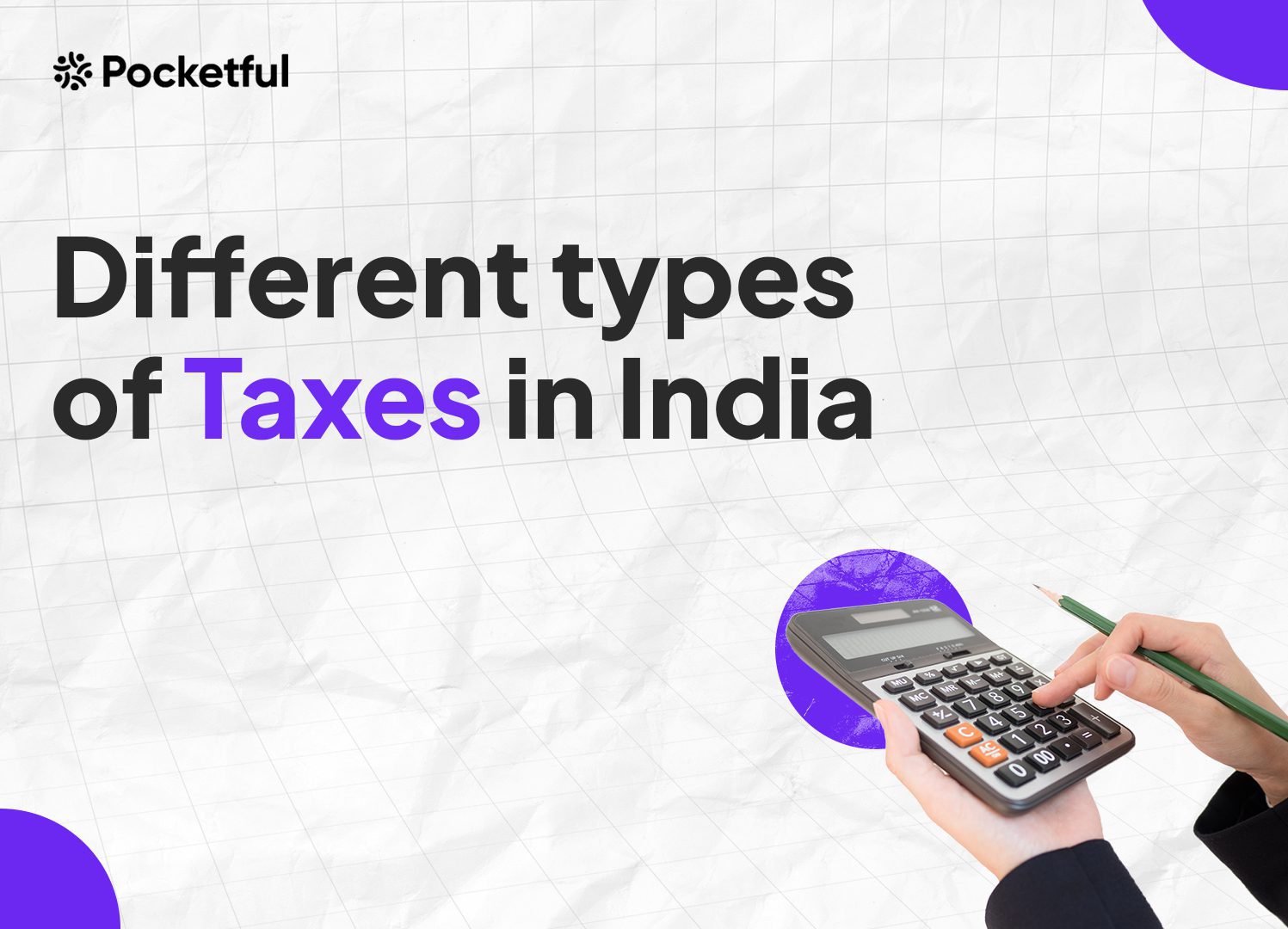| Type | Description | Contributor | Date |
|---|---|---|---|
| Post created | Pocketful Team | May-30-24 | |
| Add new links | Nisha | Mar-12-25 |
Read Next
- SEBI Action on Jane Street: Impact on Indian Markets
- What is Personal Finance?
- Military Wealth Management: Strategies for Growing and Preserving Your Assets
- India’s Republic Day 2025: Honoring the Nation’s Defense Achievements
- 10 Essential Financial Planning Tips for Military Members
- How Do You Apply for PAN 2.0 Online and Get It on Your Email ID?
- 10 Best YouTube Channels for Stock Market in India
- LTP in Stock Market: Meaning, Full Form, Strategy and Calculation
- 15 Best Stock Market Movies & Web Series to Watch
- Why Do We Pay Taxes to the Government?
- What is Profit After Tax & How to Calculate It?
- Budget 2024: Explainer On Changes In SIP Taxation
- Budget 2024: F&O Trading Gets More Expensive?
- Budget 2024-25: How Will New Tax Slabs Benefit The Middle Class?
- Semiconductor Industry in India
- What is National Company Law Tribunal?
- What is Capital Gains Tax in India?
- KYC Regulations Update: Comprehensive Guide
- National Pension System (NPS): Should You Invest?
- Sources of Revenue and Expenditures of the Government of India
Types Of Taxes In India: Direct Tax And Indirect Tax

Taxes are an inevitable part of our daily lives. No matter how hard you try, nobody can escape them. Hence, we should all at least understand their nuances to navigate our lives without any hurdles.
This blog will explain the complexities of the different types of taxes in India by breaking them down into easy-to-understand concepts.
Taxation in India
Taxes are obligatory charges or levies that the government imposes on individuals, businesses, and other entities to fund government expenditures.
The Indian taxation system has a three-tier structure, with taxes imposed by the central, state, and local municipal governments. Below is an outline of the two primary categories of taxes in India.
Read Also: What is Capital Gains Tax in India?
Direct Taxes
These are levied directly on an individual’s or company’s income. The person or entity on whom the tax is levied bears the burden of paying it. Some common types of direct taxes are explained below.
1. Income Tax
Income Tax is a tax levied by governments on the income generated by businesses and individuals. The imposition of income tax applies to a wide range of income sources, such as wages, salaries, investments, business profits, and even capital gains.
India has a progressive income tax system, which means people with higher incomes pay more of their income in taxes. Income is divided into slabs, each with a specific tax rate.
Additionally, India offers two tax regimes. The Old Tax Regime and the New Tax Regime. The new regime offers a lower tax rate but comes with fewer deductions. An individual can choose the regime that best suits his situation.

2. Capital Gains Tax
Capital Gains Tax is a levy imposed on the profit you earn from selling capital assets like stocks, real estate, or other investments.
When you sell a capital asset for more than its purchase price, you realise a capital gain, which the government taxes.
There are two types of Capital Gains Tax in India,
- Short-term Capital Gains (STCG) – The STCG applies to assets held for less than one year. The short-term Tax rate for equity and equity-oriented mutual funds is subject to 15%.
- Long-term Capital Gains (LTCG) – The LTCG generally applies to assets held for one year or more, although the holding period can vary depending on the asset. The LTCG tax rate is typically 20% on most assets. For LTCG on equity and units of equity-oriented mutual funds exceeding INR 1 lakh in a financial year, a concessional tax rate of 10% applies without the indexation benefit.
3. Corporate Tax
A Corporate Tax is imposed on a company’s profits. It is a substantial source of income for the government and is used to fund public projects and social programs. India provides a tiered corporate tax structure with varying rates based on the type of company and specific conditions. The corporate tax rate generally varies between 20% and 40% in India, depending on the company’s particulars.
4. Property Tax
Property tax is a levy imposed by the municipal corporation or local government real estate property. It is a revenue stream utilised to finance civic services and facilitate infrastructure development.

Indirect Taxes
Indirect taxes are levied on the consumption of goods and services. These taxes are usually hidden in the price we pay for a good or service. The burden of indirect taxes falls on the final consumer buying goods and services. Some types of indirect taxes are explained below:
1. Goods & Services Tax (GST)
GST is a comprehensive indirect tax levied on the supply of most goods and services in India. It replaced a variety of taxes that both the central and state governments previously imposed.
Introduced in July 2017, GST aims to streamline the indirect tax system in India by bringing several taxes under one umbrella. It also fosters transparency since it is imposed at the point of sale and displayed on the invoice. GST has multiple tax slabs ranging from 0% (exempt goods) to 28% (luxury goods).
2. Customs Duty
Custom duty is a tax levied by the Indian government on goods imported into the country. It is a fee that an individual pays to bring goods from overseas.
The individual or entity acting as the importer of goods brought into India bears the responsibility of paying the customs duty. The importer, in certain instances, may choose to transfer this cost to the consumer by incorporating it into the ultimate price of the product.

3. Excise Duty
Before the implementation of the GST in July 2017, excise duty held significant prominence as a historical tax in India. However, following the introduction of GST, the excise duty levy for most goods has been discontinued.
However, some products still attract excise duty. These include cigarettes, LPG, Beer, Electricity, Petrol, and Kerosene.
Uses of Taxes
We know that the government allocates the tax revenue it collects to finance a multitude of public services and programs that provide substantial benefits to the nation as a whole. However, the details of these expenditures still remain largely unknown. Here is a quick overview of the government’s spending.
Public Services
- Education – government schools, colleges and universities.
- Healthcare – public hospitals and clinics that offer subsidized medical care.
- Law and Order – police forces, courts, fire departments, and emergency services.
Social Welfare Programs
- Subsidies – essential goods and services like food, fuel, and fertilisers are subsidised to make them more affordable for low-income families.
- Social Security Programs – schemes like pensions for the elderly and disabled provide a safety net.
- Essential Services – a significant portion goes towards funding essential services like Defence and Infrastructure development.
Read Also: Why Do We Pay Taxes to the Government?
Conclusion
Understanding the intricacies of Indian tax allows individuals to make well-informed financial choices. Whether you are a salaried professional trying to navigate through tax brackets, a business owner in the process of exploring deductions, or simply someone who wants to be more tax-savvy, having a solid understanding of these concepts will greatly benefit you in the long run.
Frequently Asked Questions (FAQs)
What are the two main types of taxes in India?
India has two major types of taxes – direct taxes levied on your income and indirect taxes included in the price of goods and services.
Are there any tax benefits or deductions available?
Yes, there can be exemptions and deductions to reduce your tax liability. You can explore options for investments, medical expenses, etc., as defined under different sections of the Income Tax Act.
What happens if I don’t pay my taxes on time in India?
Penalties and interest can be imposed on delayed payment of taxes.
Where can I get help with filing my taxes?
Tax professionals like chartered accountants can assist you with filing your tax returns.
Do I need to pay customs duty?
Yes, if you import goods from abroad. However, the tax amount will depend on the type of good, its value, and the country of origin.
Disclaimer
The securities, funds, and strategies discussed in this blog are provided for informational purposes only. They do not represent endorsements or recommendations. Investors should conduct their own research and seek professional advice before making any investment decisions.
Article History
Table of Contents
Toggle